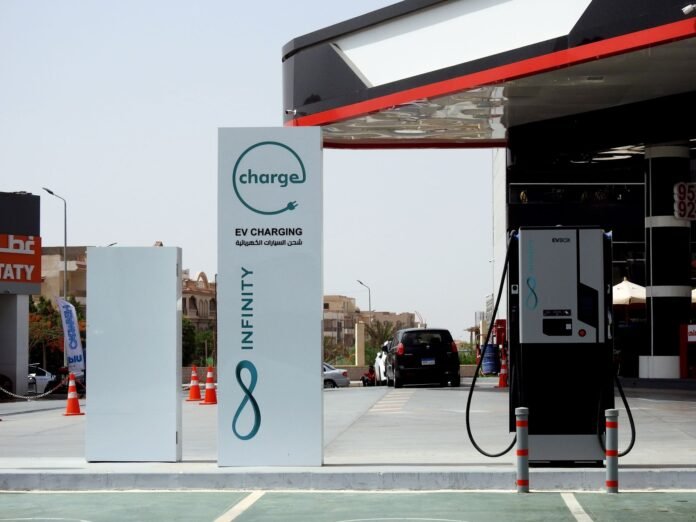Egypt was ranked 28th in a global e-mobility index regarding how prepared the country is to transition to electric vehicles (EVs), and was categorized as a starter market after scoring 32 points out of 100.
Out of 35 countries studied in the new Global Electric Mobility Readiness Index (GEMRIX) 2023 by US consulting firm Arthur D. Little, 13 countries from the MENA region were included, with Egypt ranked 10th in the Middle East.
“Despite the relatively low presence of EVs, the [Egyptian] government has been expressing strong ambitions to push for the promotion of EVs. A key reason for this ambition is the government’s commitment to achieving its sustainable development goals, which are elaborated in Egypt Vision 2030,” explained the report.
According to the report, a starter market is one with a strong potential for new start-up-style entrants and early infrastructure development in a “blue ocean environment.” It also noted that many of these markets would have some progress in establishing local EV manufacturers and an EV ecosystem.
The report highlighted Egypt’s accelerated developments and initiatives towards enhancing its e-mobility ecosystem, with the country ranking the highest in its government regulation category.
The report underscored the government’s ban on traditional petrol and diesel cars by 2040, noting that it represents a positive outlook for the e-mobility market. The ban is within the country’s Vision 2030 strategy which targets a 10 percent reduction of greenhouse emissions from the energy sector, including oil and gas, by 2030.
A new regulatory authority responsible for setting up a new policy for the local automotive industry was established in July. The Supreme Council for Vehicle Manufacturing was created as part of the government’s efforts to improve local production.
In October, Mohamed Maait, Egypt’s Minister of Finance, specified that the government would bear 35 percent of costs for EV production per vehicle to support local manufacturers. Egypt aims to increase its green investments to 50 percent of the country’s total investments by FY2024/2025, he added.
Source: Egypt Today

